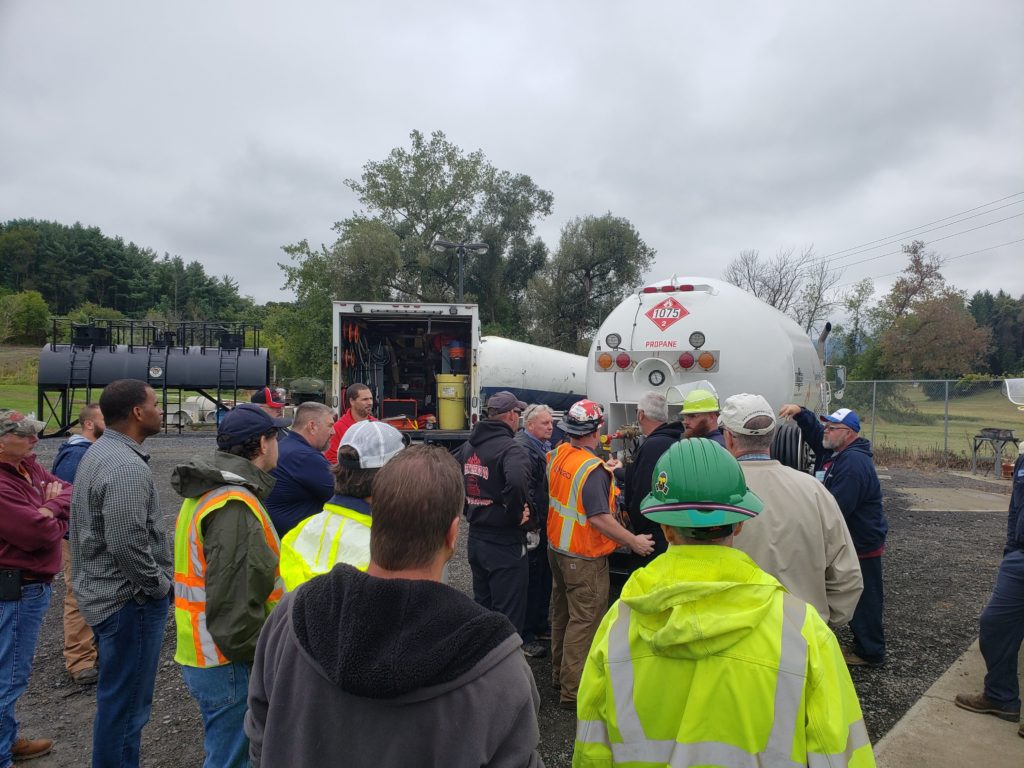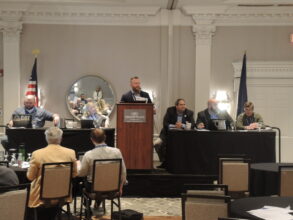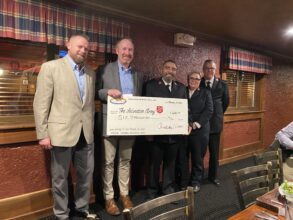NYPGA Conducts Training
More than 40 participants received NYPGA Emergency Response training at the New York State Fire Academy in Montour Falls, N.Y., in September. The association offered a 24-Hour Emergency Responder Training Program, Sept. 10-12, and an Emergency Responder Refresher Training Program held Sept. 12. The refresher training is an OSHA requirement for all responders who have taken the original 24-hour (3-day) course. The OSHA standard requires a refresher training every three years per CFR 1910.
The three-day course was based on the materials in the Propane Emergencies Text, 3rd Edition. It covered the physical characteristics of propane; the containers propane is stored in; and the way propane is transported. The information was then translated to hands-on and real-life ER training. Finally, there was a review of ER responses and incidents and a look into the future of propane ER. This training can be applied to requirements for ER training in OSHA and NFPA standards.

“We’ve always tried to incorporate more hands-on and outside activities than some of the curriculums in the past, which have focused more on classroom instruction,” Dave Latourell of Paraco Gas, head of the association’s Emergency Response Committee, and one of the course instructors, said in a phone interview with Fuel Oil News. “It worked out pretty well with the weather.”
Industry personnel, rather than firefighting personnel, made up the majority of attendees at the program in September, Latourell said, “So we tailored the class to focus on some of the more aggressive options that are available to propane professionals, and we tried to show them the resources the fire service could be expected to bring.”
Live fire demonstrations were part of the program, a way to let industry personnel “understand what the fire department would try to do in a worst-case scenario and how we could support that,” Latourell explained. There were also sessions on capping, plugging and patching of propane leaks on containers.
Latourell has served on the ER Committee for six years, and he has been with Paraco Gas for nine. Asked for examples of “aggressive options for propane issues,” Latourell spoke of “learnings from worst-case scenarios.”
One possible option is to try to cap, plug and patch containers using screws, binder straps (for compression) “or even different forms of rubber…to overcome leaks to secure the containers,” Latourell said, after which the container should be safely transported to a safer location, such as a bulk plant, “where there is a more controlled environment to work in.”
Latourell added, “A lot of times people are wondering what they can do to stop a leak and they forget that some of the PPE [personal protective equipment] they’re wearing may prove to be an option during an emergency—if you utilize it in a creative way.”
What does that mean? Possibly cutting a patch from monkey-grip gloves, for example. “We coach people to use stuff like tire inner tube materials or gasket materials,” Latourell added. “In a pinch people [can] forget that emergencies call for creative thinking and opportunistic options.”




